 W
WThe 1st Armored Division is a unit of the French Army formed during World War II that took part in the Liberation of France.
 W
WThe French 2nd Armored Division, commanded by General Philippe Leclerc, fought during the final phases of World War II in the Western Front for the liberation of France. The division was formed around a core of units that had fought in the North African campaign, and re-organized into a light armored division in 1943. The division embarked in April 1944 and shipped to various ports in Britain. On 29 July 1944, bound for France, the division embarked at Southampton. During combat in 1944, the division liberated Paris, defeated a Panzer brigade during the armored clashes in Lorraine, forced the Saverne Gap and liberated Strasbourg. After taking part in the Battle of the Colmar Pocket, the division was moved west and assaulted the German-held Atlantic port of Royan, before recrossing France in April 1945 and participating in the final fighting in southern Germany, even going first into Hitler's "Eagle's Nest". Deactivated after the war, the 2nd Division was again activated in the 1970s and served through 1999, when it was downsized to the now 2nd Armored Brigade.
 W
WThe King's Own Royal Border Regiment was an infantry regiment of the British Army in existence from 1959 until 2006, and was part of the King's Division. It was formed at Barnard Castle on 1 October 1959 through the amalgamation of the King's Own Royal Regiment (Lancaster) and the Border Regiment.
 W
WThe 5th Infantry Brigade was a regular infantry brigade of the British Army that was in existence since before the First World War, except for a short break in the late 1970s. It was an Airborne Brigade from the early 1980s until amalgamating with 24th Airmobile Brigade, in 1999, to form 16 Air Assault Brigade.
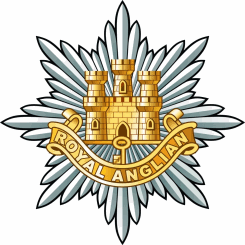 W
WThe 6th (Volunteer) Battalion, Royal Anglian Regiment was a part-time infantry unit of the British Army part of the Territorial Army (TA). Originally formed in 1971 from the expansion of many cadres, the battalion would eventually be disbanded in 1999 and formed sub-units in the new East of England Regiment. Today, the battalion's successors still form part of the Army Reserve (AR) component of the Royal Anglian Regiment's only remaining reserve unit, the 3rd (V) Bn.
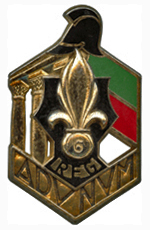 W
WThe 6th Foreign Engineer Regiment was a unit of the French Foreign Legion in the rapid reaction force and part component of the 6th Light Armoured Division,. The 6th Foreign Engineer Regiment became the 1st Foreign Engineer Regiment in 1999.
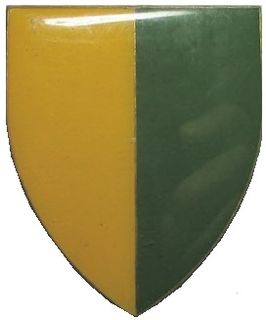 W
W7 South African Infantry Division was a formation of the South African Army, active from the 1960s to 1999.
 W
W8 South African Armoured Division was a formation of the South African Army, active from the 1970s to 1999.
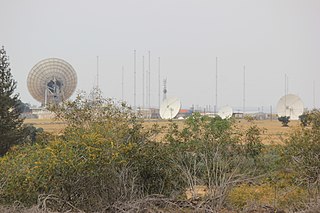 W
WAyios Nikolaos Station is a British military station and part of in the British Sovereign Base Area of Dhekelia in Cyprus. It is a former village connected by a road to the main area of the Dhekelia Garrison. The Joint Service Signal Unit (Cyprus), formerly 9th Signal Regiment and the Royal Air Force's 33 Signals Unit, is based at Ayios Nikolaos. This unit is a British Armed Forces run electronic intelligence gathering station.
 W
WThe 10th Battalion, The Parachute Regiment was an airborne infantry battalion of the Parachute Regiment, originally raised as 10th (Sussex) Battalion by the British Army during the Second World War.
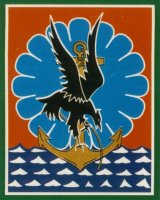 W
WThe 11th Parachute Brigade is a unit of the French Army, dominantly infantry, part of the French Airborne Units and specialized in air combat and air assault. The brigade's primary vocation is to project in emergency in order to contribute a first response to a situational crisis. An elite unit of the French Army, the brigade is commanded by a général de brigade with headquarters in Balma near Toulouse. The brigade's soldiers and airborne Marines wear the red beret (amaranth) except for the Legionnaires of the 2nd Foreign Parachute Regiment who wear green beret of the French Foreign Legion.
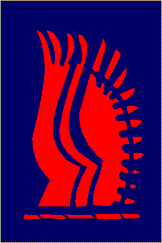 W
WThe 24th Infantry Brigade was an infantry brigade of the British Army from the First World War. It was reraised during the Second World War, as the 24th Infantry Brigade (Guards). During various designations, the brigade was active throughout the Cold War and existed until 1999, when it was merged with the 5th Airborne Brigade to become the 16 Air Assault Brigade.
 W
W42 Signal Regiment was a Territorial Army unit of the British Army's Royal Corps of Signals. It had its origins in a Volunteer unit of the Royal Engineers formed in Manchester during the Second Boer War. It provided the divisional signals for the 42nd Division and 66th Division in both World Wars, and its successor continues in the Army Reserve as a Signal Troop in Manchester.
 W
WThe 83rd Fighter Aviation Regiment was an aviation regiment established in 1944 as 1st Yugoslav Fighter Regiment formed from Yugoslav partisan aviators on training in Soviet Union.
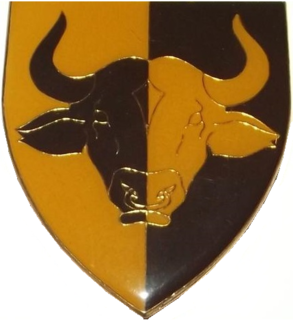 W
W116 Battalion was a motorised infantry unit of the South African Army.
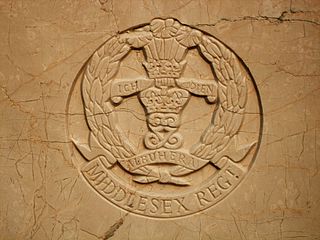 W
WThe 9th Battalion, Middlesex Regiment was an infantry battalion of the British Army. Part of the Volunteer Force, later the Territorial Force, the battalion was part of the Middlesex Regiment and recruited from the north-western suburbs of London. It served as infantry in the Mesopotamian campaign during World War I and as an air defence regiment during and after World War II.
 W
WThe United States Air Force's 750th Space Group was a space operations unit located at Onizuka Air Force Station, California. its predecessor was formed on 1 October 1987; it assumed the designation of the 750th Space Group on 30 January 1992; and it was inactivated on 25 June 1999.
 W
WThe Queen's Own Warwickshire and Worcestershire Yeomanry was a regiment of the Royal Armoured Corps, forming part of the Territorial Army (TA). Following reductions in 1969 and 1971 respectively the regiment was reduced to two and later one company sized sub-units in 1999. Following a reorganisation in 2021, there are now two sub-unit successors to the regiment.
 W
WThe 1st Canadian Division is an operational command and control formation of the Canadian Joint Operations Command, based at CFB Kingston.
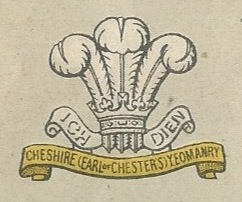 W
WThe Cheshire Yeomanry was a yeomanry regiment that can trace its history back to 1797 when Sir John Leicester of Tabley raised a county regiment of light cavalry in response to the growing fears of invasion from Napoleonic France. Its lineage is maintained by C Squadron, the Queen's Own Yeomanry.
 W
WThe 1st Cuirassier Regiment was the oldest armoured regiment in the French Army, until it was amalgamated with 11th Cuirassiers Regiment. Today its traditions are carried on by the 1st Cuirassier Squadrons Group of the 1st-11th Cuirassier Regiment.
 W
WHMAS Platypus is a former Royal Australian Navy (RAN) submarine base, located at 118 High Street, North Sydney with moorings in Neutral Bay, a suburb of Sydney in New South Wales, Australia. It was located upon the site of the Royal Australian Navy Torpedo Maintenance Establishment (RANTME), it built on the site of the former North Sydney Gas Works that operated on the site from 1877 and resumed by the Commonwealth in 1942. The Fleet Intermediate Maintenance Activity (FIMA) Workshops building on the site was originally used for torpedo assembly and storage during World War 2. It was later modified for submarine maintenance and repair, with a steel tower added to the northern end of the building for testing, cleaning and maintenance of periscopes.
 W
WThe Buffalo Volunteer Rifles (BVR) is an infantry regiment of the South African Army. As a reserve unit, it has a status roughly equivalent to that of a British Army Reserve or United States Army National Guard unit.
 W
WNumber 17 Squadron, currently No. 17 Test and Evaluation Squadron (TES), is a squadron of the Royal Air Force. It was reformed on 12 April 2013 at Edwards Air Force Base, California, as the Operational Evaluation Unit (OEU) for the Lockheed Martin F-35B Lightning.
 W
WThe Band of the Royal Regiment of Fusiliers is an Army Reserve military band part of the 5th Battalion, Royal Regiment of Fusiliers.
 W
WThe 11th Parachute Brigade is a unit of the French Army, dominantly infantry, part of the French Airborne Units and specialized in air combat and air assault. The brigade's primary vocation is to project in emergency in order to contribute a first response to a situational crisis. An elite unit of the French Army, the brigade is commanded by a général de brigade with headquarters in Balma near Toulouse. The brigade's soldiers and airborne Marines wear the red beret (amaranth) except for the Legionnaires of the 2nd Foreign Parachute Regiment who wear green beret of the French Foreign Legion.
 W
WThe 9th Parachute Chasseur Regiment was an airborne unit of the French Army that was part of the French Airborne Units and all three histories of the 10th Parachute Division, 25th Parachute Division and the 11th Parachute Brigade. It was formed during the Algerian War and fought its most notable engagement at the Battle of Frontiers in 1958 at Souk Ahras during which the sacrifice of Captain's Beaumont 3rd combat company earned naming the garrison of the 9th Parachute Chasseur in his honor. During the Algerian War, the 9th Parachute Chasseur Regiment relieved the 1st Parachute Chasseur Regiment and became part of the 25th Parachute Division. The regiment didn't take part in the 1961 Algiers Putsch. The regiment took part in numerous overseas operations before merging in 1999. The 9th Parachute Chasseur Regiment was the heir to the traditions, battle honours and decorations of the 9th Infantry Regiment created during the Ancien Régime.
 W
WThe former Royal Air Force Station Laarbruch, more commonly known as RAF Laarbruch ICAO EDUL was a Royal Air Force station, a military airfield, located in Germany on its border with the Netherlands. The Station's motto was Eine feste Burg.
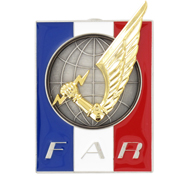 W
WThe Rapid Action Force was an army corps of the French Army, created on July 1, 1984 during the reorganization of the later within the law n°83-606 of July 8, 1983 bearing approbation of the military programming for the years 1984 to 1988; the force would have been in means to deploy in Central-Europe and exterior theatres of operations in case of crisis undergone in intermediary conflicts. The force was dissolved in 1999.
 W
WRegiment Skoonspruit was a motorised infantry regiment of the South African Army. It formed part of the South African Army Infantry Formation. As a reserve unit, it had a status roughly equivalent to that of a present-day British Army Reserve or United States Army National Guard unit.
 W
W44 Parachute Brigade was a parachute infantry brigade of the South African Army. It was founded on 20 April 1978, by Colonel Jan Breytenbach, following the disbandment of 1 SA Corps and the battle of Cassinga. Upon formation, the brigade was commanded by Brigadier M. J. du Plessis, who was assigned the task of establishing by working with the Parachute Staff Officer, Colonel Jan Breytenbach. At the time du Plessis was the commanding officer of the Orange Free State Command and had previous experience serving in 1 Parachute Battalion. Breytenbach had also been a member of 1 Parachute Battalion and had also founded the South African Special Forces Brigade and 32 Battalion. The location that was chosen for the brigade's headquarters was in the lines of the OFS Cmd Headquarters, next to the old Tempe Airfield in Bloemfontein.
 W
WThe Tri-National Tornado Training Establishment (TTTE) was a multinational air unit based at RAF Cottesmore in Rutland, England, from 1981 to 1999. It performed training on the Panavia Tornado for the Royal Air Force, Luftwaffe and Italian Air Force. Initially, pilots received four weeks of training on the ground, followed by nine weeks in the air.
 W
WFleet Air Reconnaissance Squadron 5 (VQ-5) was a former squadron of the U.S. Navy that was established on August 15, 1991. During its short-lived career, it was one of two squadrons assigned in the U.S. Navy to operate the ES-3A Shadow, which was a specialised version of the S-3 Viking used for over-horizon tracking and electronic intelligence.
 W
WFleet Air Reconnaissance Squadron 6 (VQ-6) was a former squadron of the U.S. Navy's Atlantic Fleet. During its short-lived career, it was the second of two squadrons to operate the ES-3A Shadow, an ELINT version of the Lockheed S-3 Viking.